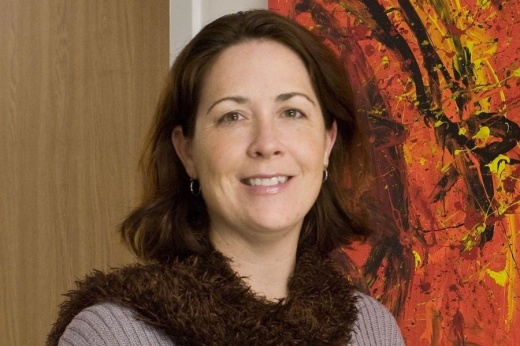Williams is a professor in the Menninger Department of Psychiatry and Behavioral Science at Baylor College of Medicine and serves as the training director for child and adolescent psychiatry at Baylor.
The state created the child mental health care consortium to address urgent mental health challenges and improve the state’s mental health care system in relation to children and adolescents.
In light of the recent passage of House Bill 3, which aims to strengthen school safety, Community Impact interviewed Williams about the state of mental health in Texas schoolchildren. This interview has been edited for length and clarity.
Why was the Texas Child Mental Health Care Consortium created?
The Texas Child Mental Health Care Consortium was created legislatively in 2019. Two things happened in the world that kind of spurred the legislative team in Texas to ... move forward and create the consortium.
One of them was Hurricane Harvey and the sort of devastation of the event itself, and then the ongoing challenges that the community had after Harvey and the impact it has. And then the next one was the tragedy with the Santa Fe shooting. These two events ... really galvanized [Texas mental health professionals] to do something more.
There was a sense that in mental health ... there's a tendency to have things be siloed off, and there's not always a lot of cross-agency collaborations or integrations.
How might mental health affect a student's academic performance or behavior at school, and what are some of the current top contributing factors?
We have plenty of evidence from a number of different national surveys that kids are not okay; there's extreme amounts of anxiety, depression, stress.
But for the vast majority of people, the [COVID-19] pandemic worsened all of our mental health to be isolated from each other. ... I do think that kids have lost valuable social skills.
And so they're definitely coming back less able to handle being with each other and managing; minor scuffles and disagreements have escalated quickly because they don't really know how to regulate as well, because they weren't around each other during a pretty good amount of time.
For those who have lived through COVID-19 isolation or a school shooting, what are some of the mental health effects, and how is the consortium helping?
Our team has been working very closely with the local mental health authority that's in that [Uvalde] area, as well as the Uvalde school district initially. Before the events [at Robb Elementary] occurred, Uvalde had not yet opted in to participate in the program that's called TCHATT, or the Texas Child Health Access Through Telemedicine.
And the unresolved trauma that has occurred because of COVID—there's so many layers to the trauma of COVID, and we have really good evidence that tells us that [in] most experiences of trauma, the effects of trauma happen about 12-18 months after a traumatic event.
What has the TCHATT revealed about the mental health of Texas students following events such as natural disasters or school shootings?
There's always an immediate impact ... but there's also long-term ramifications. [Currently] we're a little worried because it's already bad. It was bad during the pandemic. It's bad in the immediate aftermath [of a school shooting]. What's it going to be like another year from now?
Because if you are so stressed, you are so anxious, you're so upset, you're not going to be able to learn. One of the things that helps somebody learn is to feel safe and secure. And if you're not feeling that right now, your teacher could be the best teacher; your school could have the most fancy equipment, but if that child is in a headspace that's not well, they're not going to be able to take in new information.
How valuable is telehealth in treating children suffering from mental health issues?
I think that is one of the things that's really important in child mental health. ... You don't help children get better by only focusing on the child. Working with children really is to take a systemic approach, and that includes: How are the parents doing? What ...do they need to get support? So knowing what's going on in school, knowing what's going on at home. These are all really important elements.
Because the goal of TCHATT is, if somebody at school or parent themselves says, “I'm a little worried. I think something's going on with my child. They don't seem like they're feeling good. They don't seem like they're happy, that maybe they're getting more trouble,” ... TCHATT is meant to be a very easy-to-access service that can be scheduled within two weeks.
The services are not charged to the family and are state supported, ... so it's ... not something that the school has to pay for either because the state is supporting it. So they can get a visit.
What are the top reasons a child would be referred to a telehealth program like TCHATT?
So our top reasons for referral to our program is depression, anxiety and disruptive behavior. We have seen an unfortunate steady drumbeat rise with young people feeling suicidal, seriously contemplating, wanting to be done, and then unfortunately an increased rate ... [of] deaths by suicide.
So these things are all telling us that children are not doing well, and it absolutely affects your ability to learn. I know there's been this sort of either-or conversation that I don't always find very constructive. I certainly want my kid to read well and learn how to do math and learn history and science, I want them to learn. I don't think any parent doesn't want them to learn, and I don't think any clinician doesn't want children to learn.
How has the program been received by school personnel, parents and students?
Through April of 2023, ... we had 612 of the 1,000 school districts enrolled. We have 4,874 school campuses enrolled in TCHATT. ... We're now covering about 3 million ... [or] 57% of the student population in Texas is covered with TCHATT.
When we asked families how satisfied they were, 93% of families were satisfied with their services.





